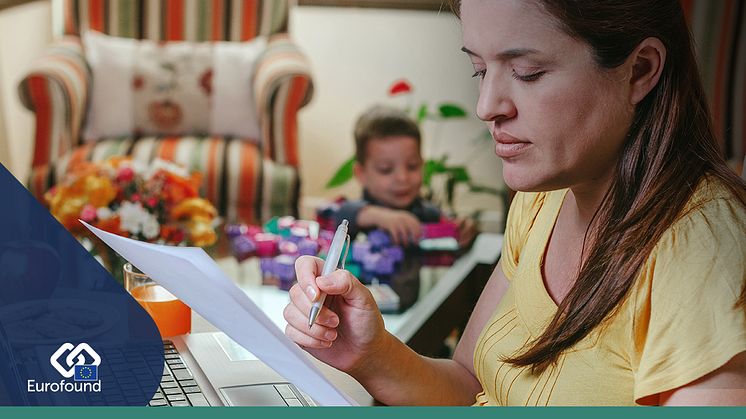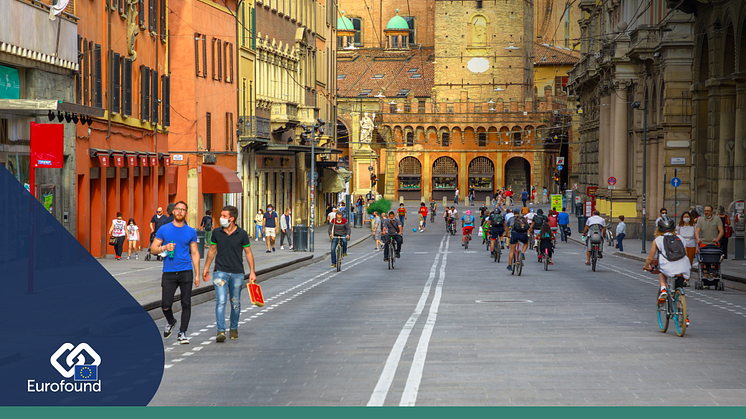
News -
Strong levels of mental well-being in Slovenia despite financial impact of COVID-19 crisis
More than 40% of people surveyed in Slovenia report loss of employment, or contracts in the case of the self-employed, due to the COVID-19 pandemic – the third highest level in the EU according to Eurofound’s Living, working and COVID-19 survey. The findings also show that 43.5% of respondents report that their financial situation has worsened when compared to the preceding three months. Despite these challenging factors, it is positive to see that people in Slovenia have reported some of the highest levels of mental well-being across the EU during this period.
The First Findings of the Living, working and COVID-19 survey, which amassed over 85,000 responses in the month of April, show that 41% of people surveyed in Slovenia had lost jobs or contracts by April – above the EU27 average of 29%. This is further exacerbated by 47% of respondents reporting that their working hours had decreased due to the pandemic. The level of job loss and reduction in working hours is likely to have played a role in 46% reporting a worsening of their financial situation and 48% predicting their financial situation to worsen in the coming period. The survey findings also show that 25% of people surveyed were struggling to make ends meet, an increase from the 19% who reported struggling to make ends meet in the European Quality of Life Survey 2016.
Although the financial impact of the COVID-19 crisis has been severe in Slovenia, the survey findings show that indicators of respondents' mental well-being are at some of the highest levels across the EU. Slovenia reports the second smallest share of people (6%) who report feeling depressed during the pandemic – half that of the EU27 average. Furthermore, 9% reported feeling lonely – which is also the second lowest level in the EU and half that of the EU27 average. The findings show that respondents in Slovenia represent the third smallest share across the EU who reported feeling particularly tense at 11% – below the EU27 average of 18%. Similarly, the findings show that 36% of people surveyed in Slovenia reported feeling cheerful and in good spirits, some or all of the time, compared to the EU27 average of 25%.
Although COVID-19 has created unprecedented challenges for communities across Europe, it is positive to see that indicators of mental well-being are very strong in Slovenia. In terms of overall quality of life, levels of life satisfaction and happiness in Slovenia were both in line with the respective EU27 averages. The findings also show that over half of respondents (51%) in Slovenia felt optimistic for the future, compared to the EU average of 35%. Overall, high levels of mental well-being and stable quality of life indicators suggest that people in Slovenia are well placed to tackle the impact of the crisis.
As the situation is constantly evolving, Eurofound will launch the second phase of the Living, working and COVID-19 survey this Friday to capture up-to-date data to reflect the current impact of the COVID-19 pandemic on the living and working conditions of people across Europe.
Eurofound has been monitoring and reporting on living and working conditions in Slovenia, in comparison to other EU Member States, since Slovenia joined the EU in 2004.
Read more:
Publication: Living, working and COVID-19: First findings – April 2020
Publication: European Quality of Life Survey 2016
Country profile: Living and working conditions in Slovenia





